Posts: 3
Threads: 1
Joined: Jul 2019
Reputation:
0
Gimp version:
Operating system(s): Windows (Vista and later)
 07-29-2019, 08:56 AM
(This post was last modified: 07-29-2019, 09:09 AM by EightSeven6.)
07-29-2019, 08:56 AM
(This post was last modified: 07-29-2019, 09:09 AM by EightSeven6.)
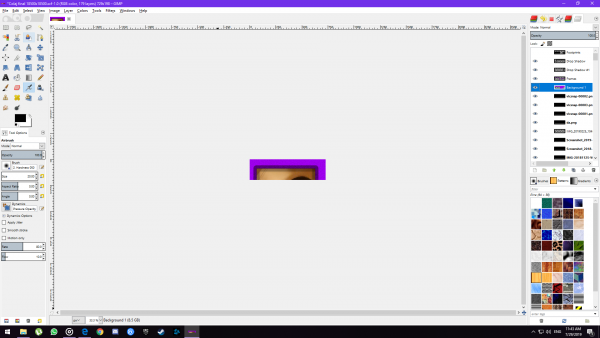
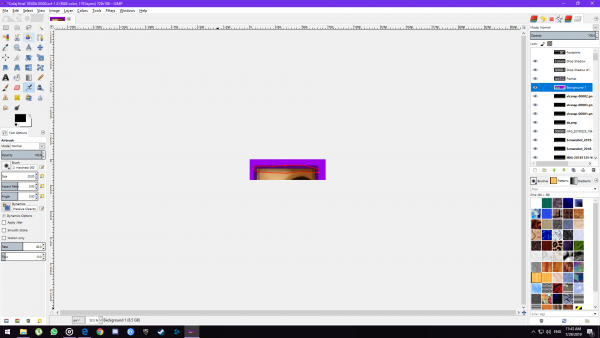
This is a crop of a bigger collage project and I'm having a problem with shadows. You can see that I tried having an image with a border around it and shadows on all sides, but at the edge of the border, a white streak appears which ruins the shadow, I have no idea what causes this and it makes the whole project look REALLY bad, I have no transparency on the image layer, nor on the border layer, it's all full opacity, I even tried removing the alpha transparency all together from the layer menu, it didn't help, trying to cover the white area with a bigger border didn't help either...please help me, having these shadows would make the whole thing look 10000 times better as it's a HUGE image (18500x18500)
This is what I see if I zoom in:
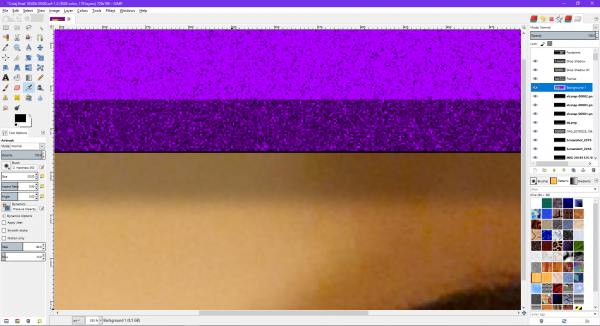
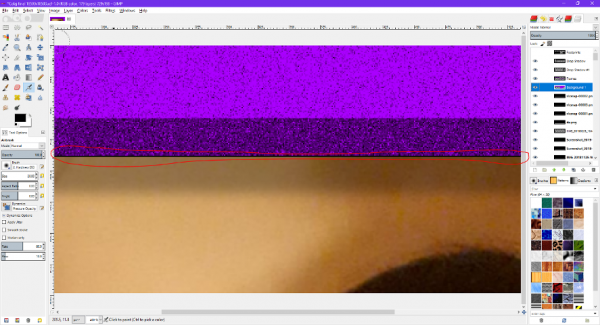
also, downscaling the project makes this white stuff become even bigger

PLEASE HELP WITHIN A FEW DAYS IF YOU CAN I WOULD LOVE YOU FOREVER          
I also found out that even removing the image in the middle completely STILL doesn't help
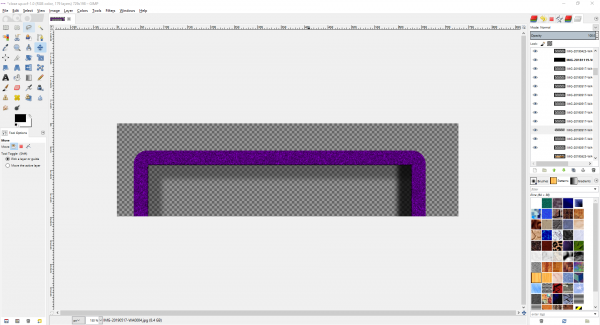
Even trying to add more shadow myself using the brush tool with black at 30% opacity isn't doing anything, it adds more to the shadow, but with no effect near that edge
Posts: 6,564
Threads: 286
Joined: Oct 2016
Reputation:
578
Gimp version:
Operating system(s): Linux
For me what happens is that the drop shadow is shifted by more than the width of the frame so there is a gap.
Otherwise can you reproduce the problem on a sample image and attach the XCF here?
Posts: 3
Threads: 1
Joined: Jul 2019
Reputation:
0
Gimp version:
Operating system(s): Windows (Vista and later)
07-29-2019, 09:49 AM
(This post was last modified: 07-29-2019, 09:54 AM by EightSeven6.)
https://drive.google.com/open?id=1kpLuuB...LPyni4lvs1
here's the sample XCF I've been using, but even moving the shadow to cover the light doesn't work, I tried it, I tried making the shadow larger and fitting some pixels of it under the border too, with no effect
(I couldn't attack the xcf directly even tho it's smaller than 500kb...I linked to my drive instead)
Also, I'm not using the actual dark purple frame as the shadow's origin, I'm using the other layer called "Background 1" which is light purple, that layer at least shares the edge with the darker purple, it definitely doesn't go past the edge
Posts: 6,564
Threads: 286
Joined: Oct 2016
Reputation:
578
Gimp version:
Operating system(s): Linux
07-29-2019, 11:29 AM
(This post was last modified: 07-29-2019, 11:31 AM by Ofnuts.)
(07-29-2019, 09:49 AM)EightSeven6 Wrote: https://drive.google.com/open?id=1kpLuuB...LPyni4lvs1
here's the sample XCF I've been using, but even moving the shadow to cover the light doesn't work, I tried it, I tried making the shadow larger and fitting some pixels of it under the border too, with no effect
(I couldn't attack the xcf directly even tho it's smaller than 500kb...I linked to my drive instead)
Also, I'm not using the actual dark purple frame as the shadow's origin, I'm using the other layer called "Background 1" which is light purple, that layer at least shares the edge with the darker purple, it definitely doesn't go past the edge
When you zoom in, the light edge either disappears or keeps its size:
And you can explore the image using the Pointer dialog, you won't see the value/luminosity increasing near the edge.
So, it is an optical illusion... (that you can perhaps counter-balance).
This said, normally, drop-shadow layers are under the layer for which they are a shadow, so that they can extend under the opaque parts.
Posts: 3
Threads: 1
Joined: Jul 2019
Reputation:
0
Gimp version:
Operating system(s): Windows (Vista and later)
(07-29-2019, 11:29 AM)Ofnuts Wrote: (07-29-2019, 09:49 AM)EightSeven6 Wrote: https://drive.google.com/open?id=1kpLuuB...LPyni4lvs1
here's the sample XCF I've been using, but even moving the shadow to cover the light doesn't work, I tried it, I tried making the shadow larger and fitting some pixels of it under the border too, with no effect
(I couldn't attack the xcf directly even tho it's smaller than 500kb...I linked to my drive instead)
Also, I'm not using the actual dark purple frame as the shadow's origin, I'm using the other layer called "Background 1" which is light purple, that layer at least shares the edge with the darker purple, it definitely doesn't go past the edge
When you zoom in, the light edge either disappears or keeps its size:
And you can explore the image using the Pointer dialog, you won't see the value/luminosity increasing near the edge.
So, it is an optical illusion... (that you can perhaps counter-balance).
This said, normally, drop-shadow layers are under the layer for which they are a shadow, so that they can extend under the opaque parts.
So basically I could get around it if I somehow managed to increment the shadow for different viewing distances and resolutions...okay...well, that will take WAY too much time on a picture that's 18500x18500...screw the shadows...
Thanks for the clarifications <3
|













